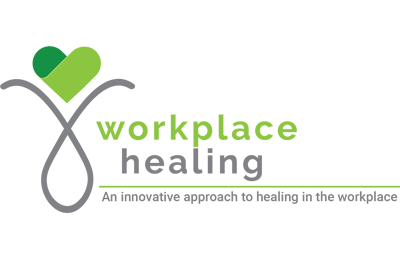 Guest post by Lisa Cooper and Mindy Corporon, Co-Founders of Workplace Healing
Guest post by Lisa Cooper and Mindy Corporon, Co-Founders of Workplace Healing
Mindy Corporon and Lisa Cooper are the co-founders of Workplace Healing and the innovators of the Human Recovery Plan™ Software Platform.
Born from a personal tragedy followed by a difficult reentry into corporate life, Workplace Healing’s Human Recovery Plan is an easy-to-use, 24-7 solution that provides corporate leaders, managers and care teams with the empathetic muscle necessary to support grieving employees. Workplace Healing is proud to be part of the Impact Foundation family.
There’s nothing more anxiety-provoking than watching an employee or colleague suffering from grief and not knowing how to confidently respond. For too many leaders it can mean they either ignore the situation altogether or resort to a vague response, like “take as much time as you need,” before carrying on with business as usual.
Without any direction on how to best approach the situation, even those in leadership may distance themselves, inadvertently causing more isolation for a bereaved employee in the grips of a difficult life disruption.
Unacknowledged or mishandled grief in the workplace not only hurts employee morale but also undermines employee engagement and harms the financial well-being of your organization.
 How does grief impact companies?
How does grief impact companies?
Since 2018, we’ve been exploring the latest research and engaging one-on-one with employers. We’ve listened carefully to what corporate leaders, HR executives, and managers had to say about their worries, fears, frustrations, and uncertainties when it comes to expressing empathy and addressing grief in the workplace. Here are just a few takeaways from these conversations:
-
Corporate standard operating procedures and bereavement policies don’t go far enough when it comes to supporting a grieving employee.
-
Managers feel overwhelmingly ill-equipped when trying to determine how to best address an employee’s life disruption.
-
Many executives want to help but aren’t sure how, especially since the grieving process is seen as a uniquely individual experience.
From our own challenging grief experiences, we know that grief can look different for every individual, but that doesn’t mean grief is a strictly personal or isolated matter. Rather, when a grieving individual feels unsupported at work, it can create costly ripple effects across an organization.
-
An unsupported grieving employee loses an estimated 30 workdays a year and absenteeism costs U.S. employers $225.8 billion annually. (Centers for Disease Control) [1]
-
“Presenteeism,” which is when a person is physically present but not present emotionally, can drastically affect workplace productivity by 1/3 or more. (Harvard Business Review) [2]
-
Employers spend $113.27 billion due to reduced productivity and on-the-job errors. (Grief Recovery Institute) [3]
Workplace Healing designed the innovative Human Recovery Plan™ Software Platform to help leaders minimize these negative effects. The Human Recovery Plan provides corporate leaders, managers and care teams with a balance of head and heart-based tactics to successfully support and re-engage a grieving employee.
One of the early adopters of the Human Recovery Plan, Cohen-Esrey Development Group, experienced the value of the on-demand software after the unexpected death of a beloved coworker earlier this year.
Supporting Employees Grieving the Death of a Coworker
 When Jay Johnson, an energetic and charismatic 31-year-old, died in his home in June, it sent shockwaves throughout his extensive network of friends and colleagues.
When Jay Johnson, an energetic and charismatic 31-year-old, died in his home in June, it sent shockwaves throughout his extensive network of friends and colleagues.
“Jay’s death was just a complete and total shock to our team,” says Lee Harris, CEO of Cohen-Esrey Development Group, which is headquartered in Merriam, KS. “I have never seen somebody that young so connected politically and otherwise. For such a young man, he had so many connections and developed many relationships that served him well—and served the company well.”
Described by his colleagues as “incredible” and “truly a character,” Jay was a development director for Cohen-Esrey based in San Antonio, TX. He was passionate about helping families find safe, affordable and quality housing. During his tenure, he was responsible for the development of 806 units across the cities of Texarkana and San Antonio, with 900 more units in the works. “His death leaves a huge hole in our organization,” Lee says.
Putting the Human Recovery Plan to work. As a client of Workplace Healing’s Human Recovery Plan™ Software Platform, Cohen-Esrey was positioned to spring into action immediately to provide head and heart-based support to Jay’s many grieving coworkers.
“The Human Recovery Plan enabled us to be intentional about supporting our teammates,” Lee says. “We did not experience the kind of helplessness or awkwardness that so often occurs when a death like this happens. Instead, we had a series of steps that we developed and implemented to help with the grieving process.”
Marilee Scheid, Director of Learning & Development at Cohen-Esrey, who helped build several Human Recovery Plans (HRP) following Jay’s death, has since built plans for other life disruptions employees have experienced. “The HRP software is super simple and intuitive,” she says.
Lee and his team chose a balance of head and heart-based tactics in the initial days and weeks to support employees grieving the death of their colleague, including:
-
Acknowledgment. The very next morning after learning about Jay’s death, the managing director pulled his team together to share the tragic news. Lee, who was in Florida, joined via Zoom. “It was very emotional. We excused employees for the day if they needed to go home,” he says.
-
Connection through storytelling. For the employees who chose to stay in the office, Cohen-Esrey brought in lunch. The team was able to express their grief and take time to exchange fond memories of Jay. “We recalled how he loved to travel solo and just meet people and befriend them,” Marilee says. “Jay used to say, ‘I’m the only millennial that hates technology.’ He wanted to talk to people. If I emailed him, he’d call me. He had a a big smile and a big heart.”
- Company-wide messaging. After connecting with Jay’s immediate colleagues, Cohen-Esrey featured a front-page tribute to Jay in their company-wide newsletter. In addition to describing his impact on the company, the article highlighted Jay’s individuality and spirit: “Jay especially enjoyed working with neighborhood groups to gain support for the apartments he was developing. He loved travel, his dog ‘Tom Bruise,’ trying new foods, dapper clothes, the arts, and he was always up for an adventure.”
- Logistical support. Because many of Jay’s closest colleagues were based in Kansas City, Lee made the company jet available to whoever wished to attend Jay’s memorial service in San Antonio. “Our team members who were able to go were thrilled they could take advantage of that. They said that they came away with a more complete feeling after attending Jay’s celebration of life,” Lee says.
- In memory of. “We had just opened the first project that Jay worked on in San Antonio, and we built a playground that he insisted be a completely accessible playground for anyone with a disability. I understand it’s the first and only one in San Antonio,” Lee says. “We’re going to put a plaque on it — the Jay Johnson Memorial Playground—as another way to celebrate his life and help our team show respect. It is a way he can live on for his friends, family and our team.
- Listening to employee concerns. Although Jay didn’t have children, he did have a beloved dog. Marilee says that one of his colleagues expressed concern about what had become of his dog. They soon learned that Jay’s dog had been taken to a city pound, but no one had been able to locate him. “I couldn’t find him,” Marilee says. “The mayor actually helped find Jay’s dog and get him out of the pound. That’s how tight Jay was with the community there.”
 Ongoing education with a human touch. Cohen-Esrey leadership also turned to their Workplace Healing Advocate for additional support when it came to crafting appropriate messaging related to bereavement and addressing questions that came up as they built their Human Recovery Plan.
Ongoing education with a human touch. Cohen-Esrey leadership also turned to their Workplace Healing Advocate for additional support when it came to crafting appropriate messaging related to bereavement and addressing questions that came up as they built their Human Recovery Plan.
“Our Human Recovery Plan Advocate was amazing. One of the things that I learned is not to use the term ‘provide closure,’” Lee says. “She pointed out that people grieve in different ways and sometimes there’s closure for some people, but others aren’t ready for that yet.”
Marilee agrees. “Little nuggets of information like that are helpful, especially for those of us who don’t have the knowledge or experience that Workplace Healing has as we support team members going through the bereavement process.”
Strengthening corporate culture. The Human Recovery Plan is an interactive solution for any innovative organization that prioritizes the health and well-being of its employees. It also ensures managers have access to the necessary tools and resources to confidently and successfully support their teams.
“We have five core values at Cohen-Esrey,” Lee says. “One of those is team member fulfillment. Workplace Healing is instrumental in helping us deliver this core value by enabling us to customize the kind of support that a team member needs during a grief event. It plays right into the foundational elements of our culture.”
Grief support at your fingertips. To learn more about Workplace Healing’s on-demand, 24/7 Human Recovery Plan™ Software Platform contact us to schedule a demo or visit www.WorkplaceHealing.com.
If you’d like to learn more about Workplace Healing and discuss how to invest, contact Mindy Corporon, mindy@workplacehealing.com or contact Impact Foundation today.
[1] Article available at CDC Foundation
[2] Article available at Harvard Business Review
[3] Article available at Grief Recovery Institute
